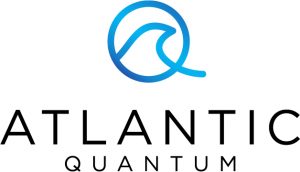Quantum News Briefs October 25: Cleveland Clinic selected by Wellcome Leap for 2 quantum computing research projects; PASQAL pioneering use of quantum computing with Japanese partner to optimize air traffic in Japan, SCALINQ partners with Atlantic Quantum to help realize large-scale quantum computing through cutting-edge hardware components + MORE

Quantum News Briefs October 25:
Cleveland Clinic selected by Wellcome Leap for 2 quantum computing research projects
 Cleveland Clinic has been selected by Wellcome Leap to lead a quantum computing research project, while also playing a significant role in another led by Algorithmiq — both in collaboration with IBM Quantum. Quantum News Briefs summarizes the announcement.
Cleveland Clinic has been selected by Wellcome Leap to lead a quantum computing research project, while also playing a significant role in another led by Algorithmiq — both in collaboration with IBM Quantum. Quantum News Briefs summarizes the announcement.
The two contracts were won through Wellcome Leap’s Quantum for Bio Challenge, which will award up to $40 million to 12 researchers globally for research focused on accelerating the development of quantum computing applications for healthcare.
Cleveland Clinic and IBM teams, partnering through the Cleveland Clinic-IBM Discovery Accelerator, will collaborate closely on one project, and with Algorithmiq on a second project:
- Protein Conformation Prediction with Quantum ComputingQuantum Computing for Photon-Drug Interactions in Cancer Prevention and Cancer Treatment:.
- Quantum Computing for Photon-Drug Interactions in Cancer Prevention and Cancer Treatment
Wellcome Leap’s Supported Challenge Program in Quantum for Bio is focused on identifying, developing, and demonstrating biology and healthcare applications that will benefit from the use of quantum computers expected to emerge in the next 3-5 years. Up to $40 million in research funding will be awarded to the selected teams and up to $10 million in challenge prizes will be available at the end of the program for successful proof-of-concept demonstrations on quantum devices with a clear path to scaling to large quantum computers.
Earlier this year, the first IBM quantum system dedicated to healthcare research was installed on Cleveland Clinic’s main campus. Deployment of the quantum system was a key milestone in the organizations’ partnership, announced in 2021, focused on advancing the pace of biomedical research through high-performance computing, artificial intelligence and quantum computing. Click here to read the announcement in-entirety.
PASQAL pioneering use of quantum computing with Japanese partner to optimize low-altitude air traffic in Japan

PASQAL and the Quantum Transformation Project (QX-PJ), which aims to transform society with the power of quantum computing, have signed an MOU considering a strategic partnership agreement to collaborate on a wide range of activities in Japan, including optimizing low-altitude air traffic. Quantum News Briefs summarizes the announcement.
The Quantum Transformation (QX) Project was officially launched in March 2021 by Sumitomo Corporation, which has long been engaged in business development using quantum computers, as an advocate of “social transformation through quantum technology, QX”. It is building a global QX ecosystem by leading various demonstrations in the fields of logistics and air mobility, actively presenting at international conferences, and investing in and collaborating with up-and-coming quantum startups in advanced countries
The partners will use PASQAL’s quantum computer in “Quantum Sky,” a quantum demonstration of a futuristic three-dimensional traffic control system to keep flying cars and drones traveling safely, as developed by a 2021 QX Project program.
Where the previous demonstration used a quantum annealing computer, this demonstration will leverage the PASQAL system’s performance as both an analog quantum computer, which specializes in optimization calculations, and as a digital-analog quantum computer, which has general-purpose processing capabilities. With a single dual-use platform, PASQAL’s experts in quantum algorithm and software development can concentrate their resources and develop more complex algorithms.
SCALINQ partners with Atlantic Quantum to help realize
large-scale quantum computing through cutting-edge hardware components


SCALINQ and Atlantic Quantum have announced a partnership to accelerate qubit control, characterization, and measurements with state-of-the-art cryogenic hardware. Quantum News Briefs summarizes this announcement.
Both companies are tackling some of the world’s hardest engineering challenges on their road to building scalable quantum computers. By joining forces, they can share knowledge to develop solutions at an even faster rate.
Atlantic Quantum has a clear goal of developing a fault-tolerant, large-scale quantum computer. They focus on advancing superconducting qubits and deploying their unique hardware architecture. There are many engineering challenges in the journey toward meaningful quantum computers, and this partnership is helping to overcome several of those. With SCALINQ’s core expertise in cryogenic, microwave devices, they are supplying Atlantic Quantum with the cryogenic hardware needed for their experiments.
SCALINQ is a leading expert in microwave engineering and low-temperature physics, with many years of experience in the field. Based in Gothenburg, Sweden, they develop high-performing cryogenic hardware solutions for spin- and superconducting devices. Their solutions have been used by researchers around the world to perform critical quantum experiments, such as measuring quantum coherence.
SCALINQs packaging solution LINQER is an enabler and core piece of equipment in the Atlantic Quantum Lab. It can host multiple devices at the same time and the unique, patented solution allows them to reliably measure devices repeatedly, and efficiently. SCALINQ has not only provided LINQER but a range of cryogenic hardware solutions.
“This partnership is a clear statement of SCALINQ’s mission, to help accelerate the development and realization of quantum computing. It is a testimony of our dedication and ability to deliver state-of-the-art hardware for the current and future needs of the industry.” – Zaid Saeed, CEO, SCALINQ
A core aspect of this partnership is collaborative R&D and combined technological development. The two teams have found great and highly complementary synergies
Click here to read announcement in-entirety.
Polariqb receives $300,000 from DARPA’s Imagining Practical Applications for a Quantum Tomorrow
 Polarisqb, has received an award for a project with the Defense Advanced Research Projects Agency, DARPA, worth up to $300,000 according to Zac Ezzone of BizJournals.
Polarisqb, has received an award for a project with the Defense Advanced Research Projects Agency, DARPA, worth up to $300,000 according to Zac Ezzone of BizJournals.
This award came through the agency’s Imagining Practical Applications for a Quantum Tomorrow program, which is aimed at exploring “novel algorithms and applications that can leverage practical quantum systems that are expected to be demonstrated within the next several years,” according to program documents.
For Polaris, a small company of about 10 employees, it’s an opportunity to continue developing its technology, said CEO Shahar Keinan. Importantly,the award also gives the company validation that could help Polaris reach potential customers.”It gives us credibility on the codes … and the technology that we develop that somebody else looked at it and said, ‘This is good enough and they are doing good,'” Keinan said.
This project with DARPA, part of the U.S. Department of Defense, runs for a year. During that time, Polaris has to provide the federal agency with monthly status reports and attend quarterly meetings. Keinan said DARPA didn’t hand over a check upfront, but will instead provide payments to the company based on its success as the project progresses. The total award value is limited to a maximum of $300,000.
Polaris earlier this year began offering a subscription-based platform, called Quantum-Aided Drug Design, or QuADD, that, the company says can quickly identify a library of top candidate molecules for drug targets. This is where the company is focusing much of its efforts. This platform can generate repeating incoming and puts position Polaris in position to work with larger companies on multiple projects per year. Click here to read the article on BizJournals.
Sandra K. Helsel, Ph.D. has been researching and reporting on frontier technologies since 1990. She has her Ph.D. from the University of Arizona.



















